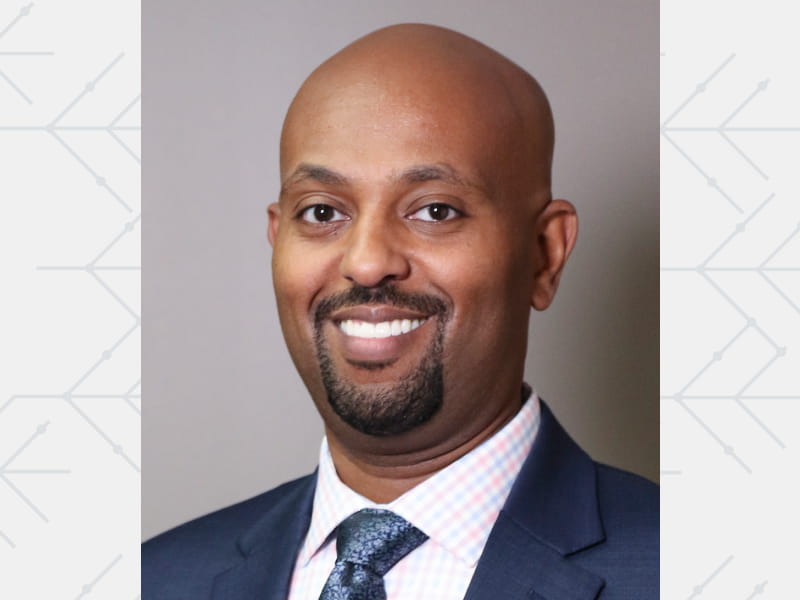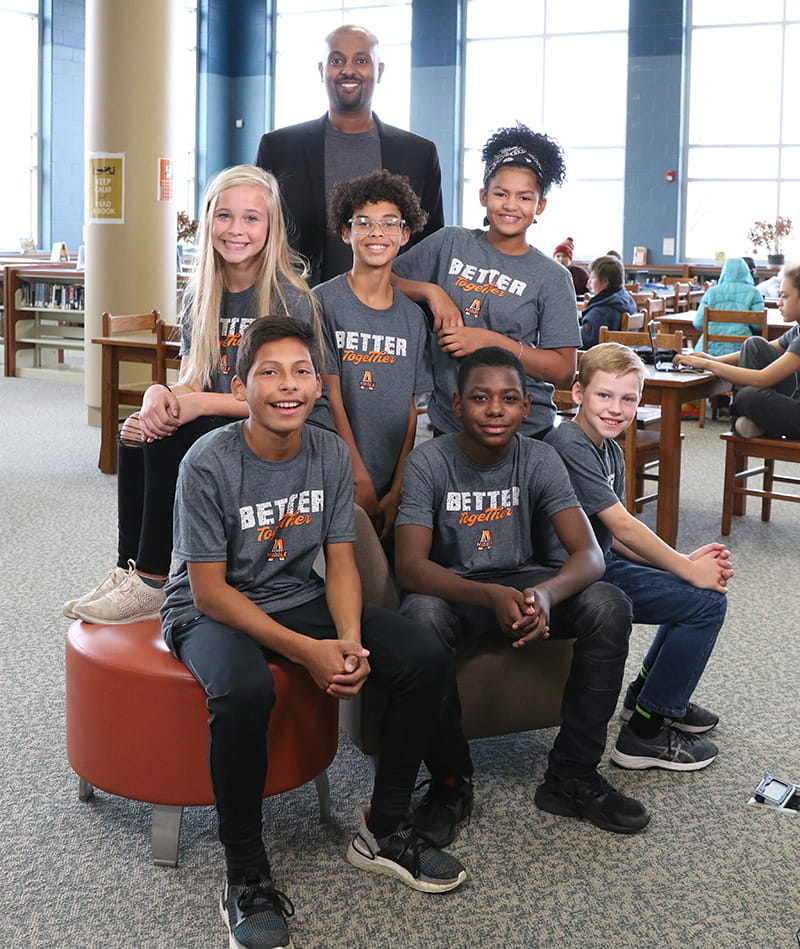Brother's death from heart failure inspires his own fight for health
By American Heart Association News

Yonas Michael didn't know what to think when his younger brother, Daniel, kept saying he felt "funny."
"It's like I can really feel my heartbeat," Daniel told him.
The brothers didn't think much of it at first. Yonas was studying for a master's degree in education at Iowa State University and Daniel had joined him from their childhood home in Maryland.
"He was trying to figure out life, so he moved in with me for a few years," Yonas said. "He wasn't living a healthy lifestyle. He smoked, drank, ate whatever."
Yonas' lifestyle wasn't healthy either. Having grown up on processed foods and sodas, the brothers were significantly overweight, as was their younger sister.
Daniel's discomfort eventually led to him being hospitalized. When tests proved inconclusive, their worried mother convinced him to return to Maryland, where an appointment at Johns Hopkins Hospital resulted in a jarring diagnosis: the 25-year-old had congestive heart failure. His heart wasn't pumping as well as it should. He also had Type 2 diabetes but kept that information from his family, including Yonas.
"I was worried, but I didn't really know what it all meant," Yonas said. "It wasn't in our culture to talk about things."
Daniel received a wearable defibrillator, a device worn as a vest that continually monitors the heart and can deliver a shock to restore a normal heart rhythm if needed. He quit smoking and drinking, and he lost weight.
Yonas resolved to make changes, too. At that point, he carried 328 pounds on his 6-foot-4 frame.
"I joined a gym and exercised almost every day, doing group fitness classes, and I started eating really healthy," Yonas said. "In half a year, I'd lost 55 pounds."
But that happiness was muted by more bad news. Daniel's heart function had continued to deteriorate, and he needed a heart transplant. Meanwhile, his doctors implanted an LVAD, or left ventricular assist device, a machine that essentially does the heart's pumping.
"He made improvements, and I was feeling optimistic," Yonas said. "We were waiting for a heart. But what I later learned is, I'd been watching too much TV. … There's not a bunch of hearts sitting around."
By the summer of 2017, Daniel's health worsened. Yonas left his job working with at-risk students in the Ames Community School District to be near his family in Maryland.
Daniel was hospitalized. His organs were shutting down. He died that September.
The loss left Yonas reeling.
"I lost some weight from depression," he said, "then gained weight from eating more again."
The following year, in August 2018, Yonas was diagnosed with Type 2 diabetes.
"That's when I thought, 'I can't do this. I can't allow my parents to bury another child,'" he said. "I made a commitment to cut out all processed foods and sugar and carbs."
Through diet and exercise, he lost another 60 pounds. Yonas now weighs 215 pounds. He no longer requires medication to manage his diabetes.
It inspired his sister, Yordanos Drar, who also had been diagnosed with Type 2 diabetes.
"My brother's passing made me think how I wasn't taking my health seriously, but I still didn't do anything about it until my diabetes diagnosis," said Yordanos, a respiratory therapist in Maryland. "But Yonas and his own weight loss was my biggest motivation."
She cut out processed foods and sweets. Along with exercise and following a vegetarian diet, Yordanos has lost more than 100 pounds, with more to go, she said.
In 2019, Yonas was lured back to Iowa to become principal at Ames Middle School.

During a student assembly to announce the American Heart Association's American Heart Challenge fundraiser, Yonas made a sudden decision to share his brother's story publicly for the first time.
"I had this huge knot in my stomach," he said, "but I wanted to tell them my 'why.' Why this was an important cause to me. How my brother had heart disease, and although he eventually passed away, funding for research allowed him to live longer."
He decided to kick off fundraising by donating $1 for each of the school's 1,100 students. And challenged each student to raise $32, representing Daniel's age when he died.
Students also learned about a seventh grader who was hospitalized with a heart condition. Other students rallied around him, sending cards and well wishes.
"I was so happy to not only help raise money to save lives, but to see the humanity in our students," Yonas said. "That was the greatest reward."
Stories From the Heart chronicles the inspiring journeys of heart disease and stroke survivors, caregivers and advocates.
If you have questions or comments about this story, please email [email protected].





